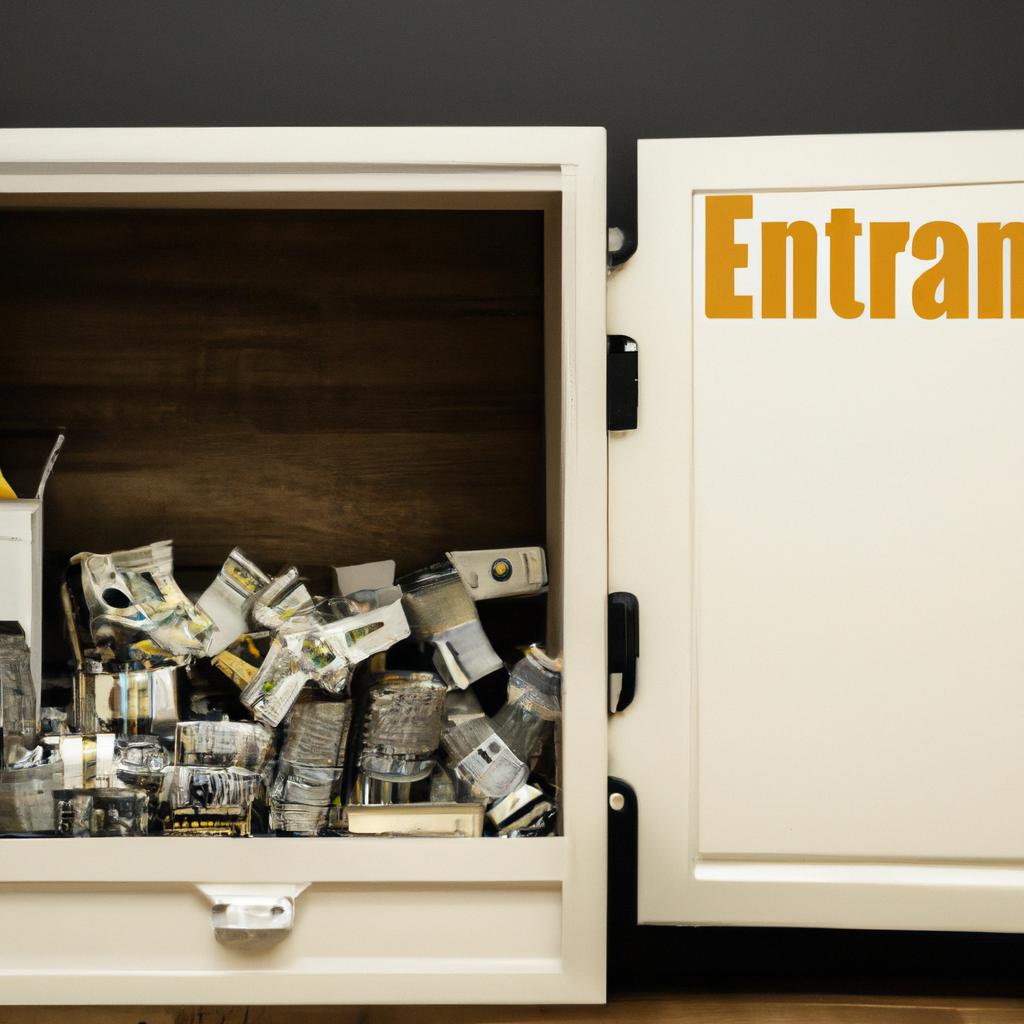Introduction to Tax Deductions for Entrepreneurs
Tax deductions are an important way that entrepreneurs can reduce the amount of taxable income they pay in taxes. This means that understanding the relevant tax codes and taking advantage of available deductions is essential to minimizing taxes and keeping more of your hard-earned money.
The different types of deductions available to entrepreneurs can vary widely, but typically include business-related expenses, charitable donations, home office costs, and capital expense deductions. Each of these categories can provide substantial savings if used appropriately and documented correctly.
Let’s explore each type of deduction available to entrepreneurs and how they can be used to maximize their savings.
A Brief Overview of Tax Deductions for Entrepreneurs
As an entrepreneur, taking advantage of tax deductions can help you save money and stay compliant when filing your taxes. There are several types of deductions available to entrepreneurs that can reduce their taxable income. Here’s a brief overview of the most common:
- Business-Related Expenses: Common business expenses that qualify for deductions include rent, advertising, insurance, salaries, and vehicle expenses.
- Charitable Donations: Donations to qualified organizations may be eligible for deduction from taxable income, so be sure to keep accurate records.
- Home Office Costs: An entrepreneur may qualify for deductions related to their home office if they use part of their home for business purposes.
- Capital Expense Deductions: In certain instances, larger purchases or investments may be eligible for deductions.
Maximizing Business Expense Deductions
When it comes to running a business, many expenses may be deducted from taxable income. Rent, advertising, insurance, salaries, and vehicle expenses are all typical qualifying expenditures. Knowing what documents to keep and in what format is crucial for getting the most out of these deductions.
To ensure that entrepreneurs and business owners can properly report and deduct business expenses, the Internal Revenue Service (IRS) requires that all records be kept for at least three years. This includes receipts, invoices, bank statements, and other evidence that clearly documents the expense. If you are claiming a deduction for an expense that was paid by cash, such as lodging or meals, you must keep your receipts as proof.
In addition, the IRS requires that the following information be included in every receipt or invoice:
- Amount of the expense
- Date of payment for the expense
- A description of the goods purchased or service rendered
- The name and address of the person/entity who received the payment
In many cases, businesses may be able to use computer software to track their expenses and generate reports. Having a detailed accounting of all your business expenses will make filing your taxes much easier and less stressful.
Charitable Deductions
Making donations to qualified charities can help reduce your taxable income and provide tax deductions. While the amount of the deduction may vary, there are some important points to consider when making charitable donations for tax deductions.
In order for a donation to qualify as a tax deduction, it must be made to a qualifying organization as designated by the IRS. These organizations typically include religious groups, educational institutions, and certain nonprofit organizations. Donations made to individuals or political organizations do not qualify.
In addition, you will need to retain records of any donations if they exceed $250 in value. Documentation should include the date of donation, the name and address of the organization, and a description and value of the donation. Supporting documents, such as receipts and cancelled checks, can also be used to support your donation deduction.
If you make donations of household goods or clothing, then you must have proof of market value for those items. This is especially true for items with a high market value. The IRS requires that you allocate a fair market value to all items donated.
It’s also important to remember the types of donations that cannot be deducted. Some donations that are prohibited include cash payments to individuals, political contributions, entertainment or recreational activities, and the purchase of tickets or admission to events.
By understanding the rules around deductible charitable donations, you can take advantage of available deductions while still adhering to IRS regulations.
Home Office Deductions
If you are an entrepreneur who works from home, you may be eligible for a home office deduction. The deductions that you can take depend on the amount of time you spend working from home and which areas of the house you use to conduct your business.
Generally, if you regularly and exclusively use a part of your home as your home office, then you may be entitled to deduct certain expenses such as electricity, telephone, internet, furniture, and other associated costs.
In order to make sure that your home office deduction is compliant with tax regulations, there are several criteria to satisfy. Firstly, you must prove that the space you use is an exclusive business area, such as by closing any other entrances to the office. Secondly, you must demonstrate that you use the home office space regularly for work. Finally, make sure that you keep track of all the relevant expenses you incur.
- Demonstrate that the space is exclusively used for business purposes
- Prove that you use the space regularly for business purposes
- Keep track of all expenses incurred for the space
You should also remember that you can’t claim personal expenses or costs associated with prepayment of tax, such as payments made towards estimated taxes. By understanding the rules that govern home office deductions, you can ensure that you get the most out of your deductions.
Capital Expense Deductions
Capital expenses, such as large investments or purchases, may qualify for certain deductions depending on the nature of the expense. It is important to track these expenses carefully so that you can maximize your deductions come tax season.
Certain costs are considered capital if they benefit your business for an extended period of time. Examples of these expenses include things like furniture, machinery, equipment, or vehicles that are used in your business operations. Depending on the cost of the item, you may be able to deduct a portion of the expense in one year or it may have to be written off over a number of years.
In addition, capital expenditures can also include the cost of building improvements, such as renovations or upgrades, as well as the cost of purchasing land, buildings, and other real estate. These expenses can also qualify for deductions, but must meet certain criteria in order to be eligible.
It is important to keep all relevant documents and receipts from every large purchase or investment, so that you have evidence of the transaction when it comes time to file taxes. You should also talk to a qualified accountant or tax adviser to ensure that you are taking full advantage of all available deductions.
What Else You Need to Know?
As an entrepreneur, there are a few other important points to keep in mind in order to maximize your tax deductions and ensure compliance with the law. Here’s what you should know:
- Travel Expenses: If your business requires traveling for any reason, you may be able to deduct some of the associated costs, such as transportation and lodging. Make sure to keep accurate records of your travel dates, destinations, and related expenses for evidence if needed.
- Audit Avoidance: Audits from the IRS are never fun, so make sure to document and declare all deductions accurately and honestly. Refer to the most recent tax laws before taking any deductions, and consult a tax professional if needed.
- Documentation: It’s vital to keep adequate records of all deductions you take, including invoices, bank statements, and receipts. This will make it easy to prove your deductions if you are ever audited.
Tax deductions can help entrepreneurs minimize their taxable income and save money. However, it’s important to understand the relevant tax codes and know which deductions you qualify for, as well as how to document them properly.
Conclusion
Understanding and maximizing the tax deductions available to entrepreneurs is a key component in minimizing their taxable income. Whether it’s through business expenses, charitable donations, home office costs, or capital expense deductions, entrepreneurs should be aware of the many opportunities to reduce their taxes and ensure compliance with applicable laws. This guide has outlined all of these potential deductions and provides useful tips on how to maximize savings while also remaining compliant. It’s important to also stay up to date on your local tax regulations, as well as consult an experienced tax professional to help make sure you are taking advantage of all that is available to you.
We hope this guide has provided you with a better understanding of the tax deductions available for entrepreneurs. For more information, visit the Internal Revenue Service website for detailed instructions and rules.
comments: 0

